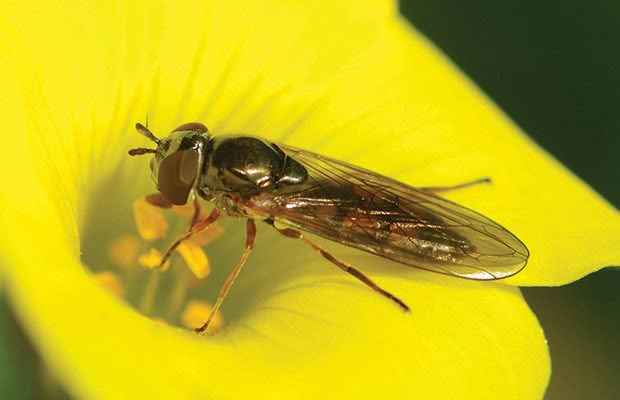Why hoverflies could be critical for future food security

Hoverflies could be our new favourite buzzy buddies.
Words: Nadene Hall
Hoverflies could become vital to future food security and ecosystem health as other pollinators struggle to survive. The University of Western Australia found hoverflies visit 72 percent of global food crops, and don’t appear to be facing the serious declines experienced by bee populations and other pollinators.
Hoverflies also benefit growers in ways that bees, bumblebees, and butterflies don’t, including:
■ their larvae eat aphids, caterpillars, and mealybugs;
■ they travel long distances, moving pollen up to 100km, helping to spread genetic diversity and assist plant survival;
■ some species live at soil level and eat decomposing plant matter.
Many companies now supply or are investing in hoverfly systems to improve pollination, pest control, and composting.
The researchers say there are still major challenges in using hoverflies for pollination. There’s a need for better rearing techniques, more understanding of chemical and visual attractants, the effects of agrochemicals, and how to use them outside enclosed glasshouses.
Source: Pollination by hoverflies in the Anthropocene (2020).
Love this story? Subscribe now!
 This article first appeared in NZ Lifestyle Block Magazine.
This article first appeared in NZ Lifestyle Block Magazine.
